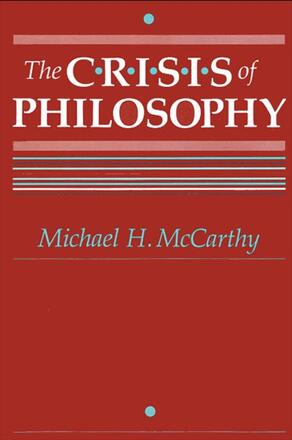
The Crisis of Philosophy
Alternative formats available from:
Description
This book presents a sympathetic yet critical treatment of the major philosophical attempts to define a viable project for philosophy in the face of historical changes. McCarthy, then, proposes a comprehensive, critical, and methodological strategy of epistemic integration that fully respects the progressive and pluralistic character of contemporary science and common sense.
The programs of Frege, Husserl, Wittgenstein, Carnap, Sellers, Dewey, Quine, and Rorty are carefully presented and an assessment is made of their merits and limitations. This assessment results in a defense of Lonergan's integrative strategy — a nuanced philosophical strategy around which a gathering center could be built. McCarthy presents Lonergan's work as containing the firm outline and partial execution of a philosophical project continuous with philosophy's historic purposes and equal to the exigences of the present.
The book examines a broad range of seminal topics and, after extended dialectical treatment of them, develops a coherent account of their interdependence. These topics include psychologism, intentionality, the limits of naturalism, semantical and epistemic realism, historical belonging, epistemic invariance, foundational analysis, the limitation of logic and of the linguistic turn, generalized empirical method, the interdependence of mind and language, the interplay of nature and history, and the critical appropriation of tradition.
Michael H. McCarthy is Professor of Philosophy at Vassar College.
Reviews
"This book ranks among the best studies of the difficulties deeply troubling our culture. It cogently articulates the crisis of philosophy in our time. The reader is promised a resolution at the end of the Introduction, which is enough to keep her or him convinced that the narrative theme of crisis is not going to deconstruct in a dead-end. Then in the final two chapters the reader's efforts are very richly rewarded. The crisis of philosophy, which is fundamentally a cultural crisis, is seen as a challenge — as an invitation to a new and exciting stage of meaning in human history. " — Matthew L. Lamb, Boston College